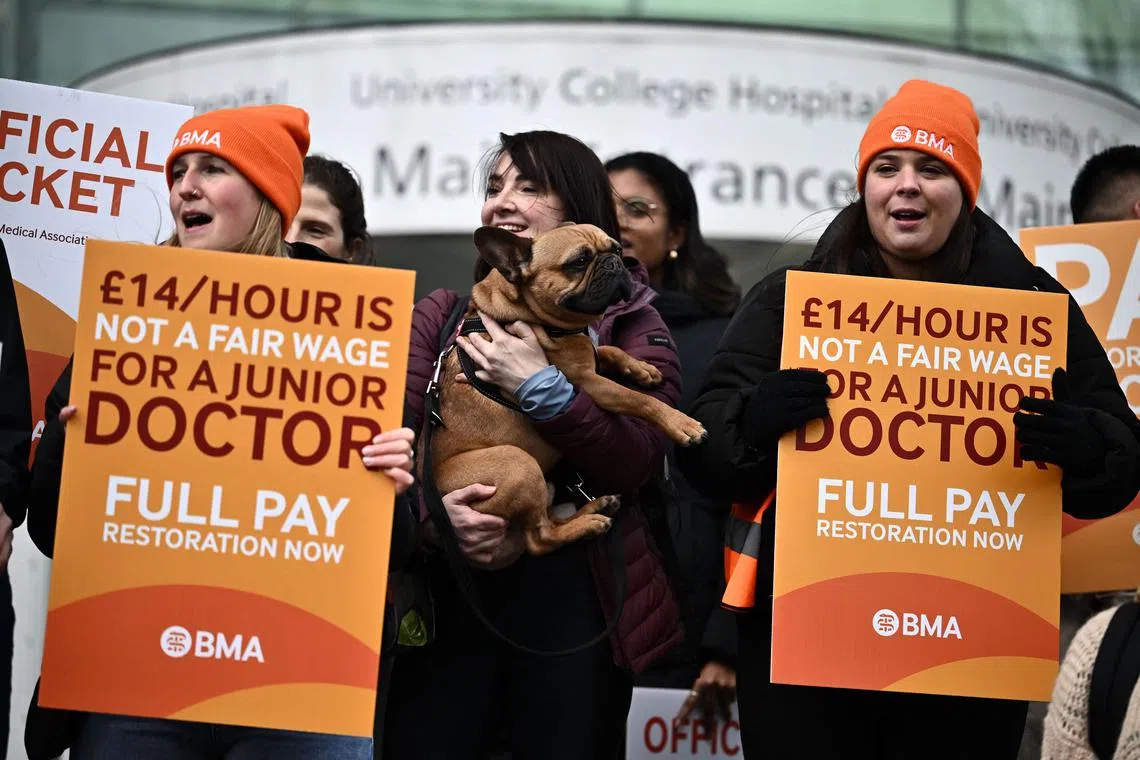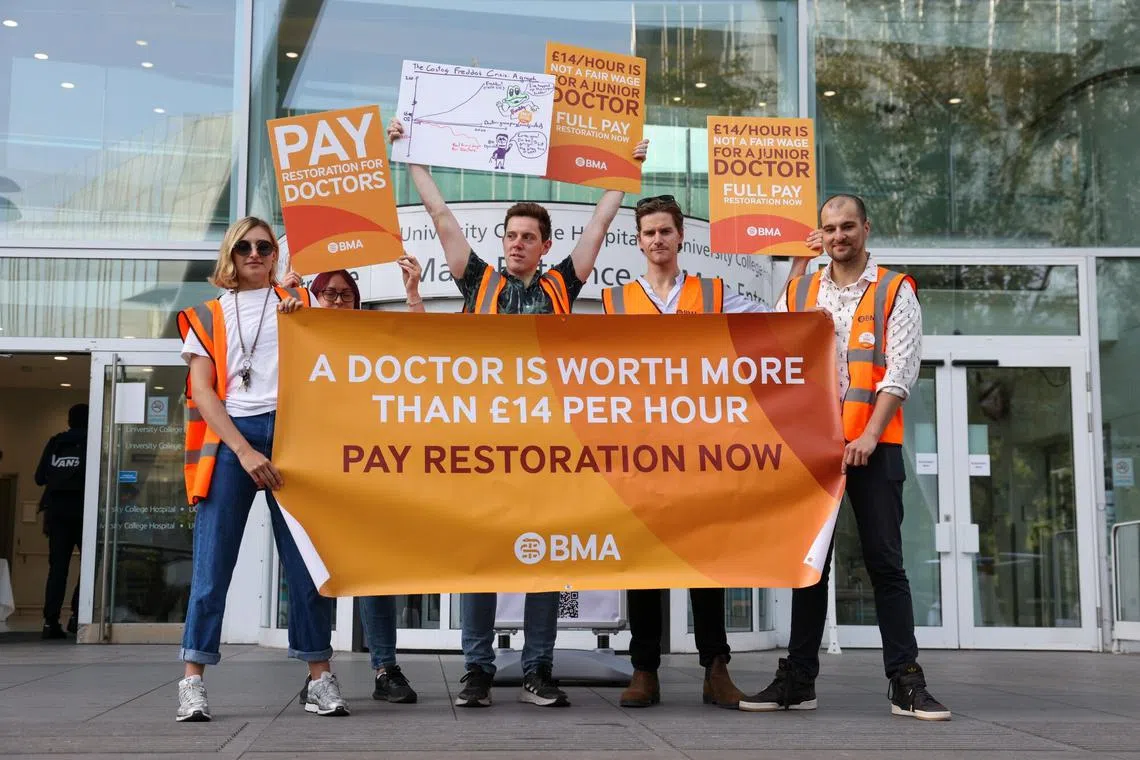Britain offers doctors, teachers pay rises of 6% or more to end worker strikes
Sign up now: Get ST's newsletters delivered to your inbox

The unprecedented five-day stoppage over pay and staff retention is the latest in eight months of industrial action across the NHS.
PHOTO: AFP
LONDON – The British government has decided to accept recommendations for pay increases for millions of public sector workers, Treasury Minister John Glen said on Thursday, giving doctors and teachers hikes of at least 6 per cent.
Prime Minister Rishi Sunak’s government announced its decision after considering the recommendations of a series of independent pay review boards.
The decision comes as hospital doctors in England on Thursday staged the biggest walkout in the history of Britain’s National Health Service (NHS), prompting fears for patient safety.
The pay increases are below the current 8.7 per cent inflation rate, but are aimed at bridging the gap following a bout of huge industrial unrest across Britain over falling real wages.
Junior doctors are to get a 6 per cent pay uplift and a lump-sum pay increase of £1,250 (S$2,200), while teachers will get 6.5 per cent. The government also announced pay increases for police (7 per cent) and armed forces (5 per cent).
The unprecedented five-day stoppage over pay and staff retention is the latest in eight months of industrial action across the NHS, which is already reeling from a vast pandemic backlog.
“The NHS has been running on goodwill, and now this is the last chance to change that,” said 27-year-old junior doctor Arjan Sing, on a picket line outside London’s University College Hospital.
Mr Glen said there would be no new borrowing or spending to fund the increases although teachers’ pay rises would be funded by a reallocation of the existing education department budget.
That is likely to anger trade unions, who have said school and hospital budgets cannot bear the cost of wage increases without cutting spending in other areas.
After more than a year of elevated inflation – which at its peak was over 11 per cent – the government is struggling to balance the need to end strikes with rising public debt levels. It has little room for more spending on wages without either raising taxes, cutting other public services or missing its self-imposed targets to reduce borrowing.
‘Destructive’
The bitter row between junior doctors and the government has seen them call for their 2008 to 2009 pay levels to be restored – something the government says would mean an average pay award of about 35 per cent.
The British Medical Association’s (BMA) junior doctors committee says medics have effectively had a 26 per cent pay cut in real terms in the last 15 years, as salaries failed to keep pace with soaring inflation.
“Today marks the start of the longest single walkout by doctors in the NHS’ history, but this is still not a record that needs to go into the history books,” BMA leaders Dr Robert Laurenson and Dr Vivek Trivedi said.

Junior doctors strike on a picket line outside at University College Hosptial in London, on July 13, 2023.
PHOTO: BLOOMBERG
“We can call this strike off today if the government will simply follow the example of the government in Scotland and drop their nonsensical precondition of not talking whilst strikes are announced and produce an offer which is credible to the doctors they are speaking with,” they said.
Similar stoppages in June and April
“The complete inflexibility we see from the UK government today is baffling, frustrating, and ultimately destructive for everyone who wants waiting lists to go down and NHS staffing numbers to go up,” Dr Laurenson and Dr Trivedi added.
About seven million people were waiting for treatment in April – a record – with nearly three million waiting more than 18 months, the BMA said. AFP, REUTERS


